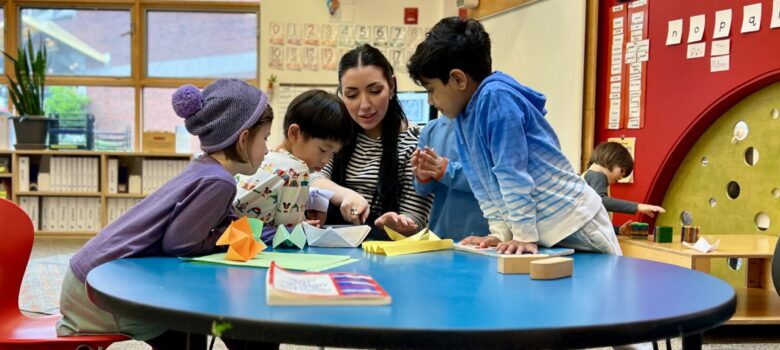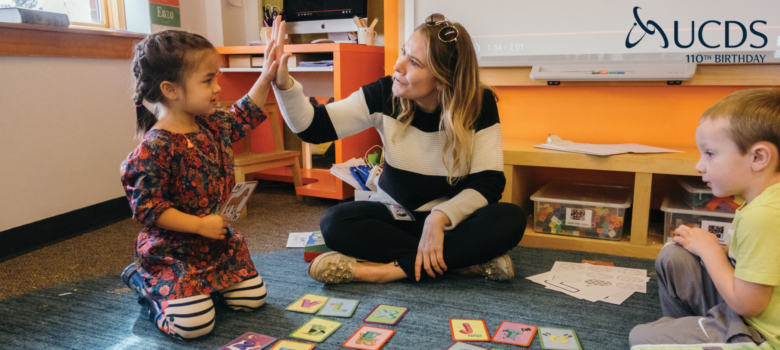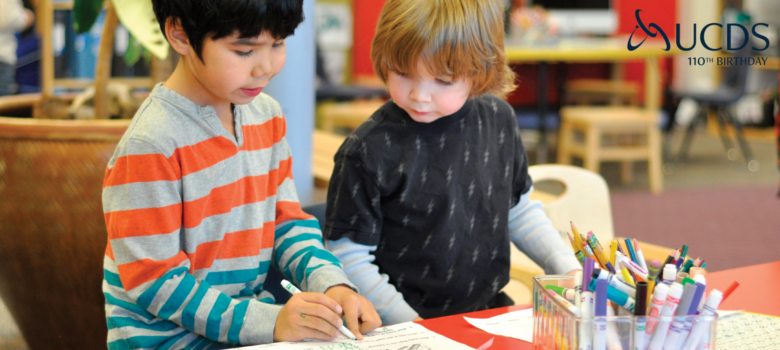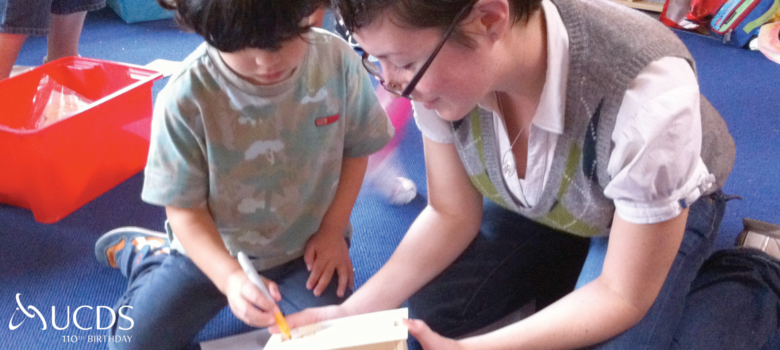To mix things up a bit, here’s 5th Grade Teacher and UCDS College for School Culture course co-designer Sarah Donahue, with some insights on the collaborative development of our in-house graduate program design. -Ed.
__________
Earlier this fall, fellow UCDS teacher Deb wrote about her experience as part of the Syllabus Design Group for the UCDS College for School Culture (CSC). As a member of that group, I worked with Deb and ten other colleagues to construct a framework for what syllabus creation would look like for the CSC. It was months of attempting to answer theoretical questions such as: What does a syllabus provide for the student and teacher? What does responsive teaching look like on a syllabus? How will instructors work together so that their syllabi are in conversation with each other?
When creating a framework for something that’s never been done before, it’s amazing how quickly you end up in a place of “I’m not sure. It seems like it would work.” It was the first phase of the design thinking process at its finest: ambitious, inspirational, untested.
…Fast forward a few months and we’ve begun prototyping. We have four design teams working to create syllabi for nine courses. It’s a lot of people jumping into new water simultaneously, and in many ways, we’re holding hands and taking a giant leap of faith. It’s scary and exhilarating, and yet, I’m oddly comforted by the unknown.
I don’t say this because I’m confident that our plans will work, but because I’m confident that many of them won’t. While our structures seem logical in an ideal world, I’m sure that we’re going to run into problems with the framework we created and that things we never considered are going to become quickly evident. But most of all, I’m sure that we’re going to problem solve as we go and learn a tremendous amount along the way.
This is one of those moments that reaffirms my gratitude for working at a school that allows teachers to take on ambitious projects and has faith that the lessons gleaned from the process will serve as powerful and important learning experiences. Undoubtedly, we’re going to come out of the next few months knowing more about course structure, the material we’re teaching, and the ways to a build an even deeper professional dialogue with each other. It’s experiential learning for educators, in all its challenging, meaningful, tremendously fun glory.
I’m certain of this because it is already happening. It’s late spring and I’m spending weekends and nights poring over books. I’m scribbling down notes for the classes I’m designing and also to consider in my classroom. I’m engaging with colleagues in new ways. Even just hearing why others signed up for this work has provided a new understanding of where they are in their educational journey and what their goals for the future are in a way that isn’t always known in the frantic pace of a school day. This information has already informed how I can better support them day-to-day and opened the door for new types of conversations.
At a time of year that often feels like a wrap up, I am energized by the work and partnerships ahead. I have no idea what shape the next few months will take, but it’s an adventure I’m thankful to be on.





